Canada’s banks may not be as exposed to commercial real estate as their counterparts in the United States, but that doesn’t mean their earnings aren’t at risk, particularly from the office segment pummelled by remote work, according to a prominent Bay Street analyst.
Real eState
Canadian bank earnings at risk from office real estate exposure, says Bay Street analyst
|
|
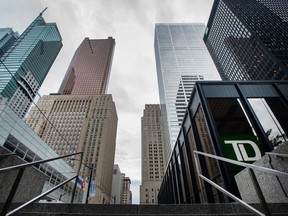
Commercial real estate loans represent the second-largest lending exposure of Canada’s six largest banks, trailing only residential real estate in proportional size, at around 10 per cent of lending portfolios, according to National Bank Financial analyst Gabriel Dechaine.
Rising interest rates have challenged commercial real estate owners and investors while, at the same time, remote work is leaving many office buildings under-utilized and hurting rent prospects.
Office exposures are particularly worrisome
Gabriel Dechaine, analyst, National Bank
“Of course, in either scenario, earnings downside would be even greater considering that losses would also be incurred in other lending portfolios,” he said.
Despite the potential earnings impact, the analyst said none of the large banks would be likely to fall below the minimum capital cushions required by regulators.
Commercial real estate loans have attracted a lot of attention in the United States since the collapse of Silicon Valley Bank in March because, according to Goldman Sachs Group Inc. research, banks there with less than US$180 billion in assets hold around 70 per cent of commercial real estate loans in the banking system on their balance sheets. U.S. regional banks with between US$10 billion and US$20 billion in assets have 25 per cent of their loans tied to commercial real estate.
“Despite the stellar (Canadian) credit metrics today, investors are undoubtedly questioning coverage ratios, in the event of an actual CRE downturn (particularly in the office category),” Dechaine said.
“With the CRE overhang and the ongoing turbulence in the U.S. regional banking sector that could trigger a recession, we believe most investors will maintain a cautious stance towards the Big 6 banks.”
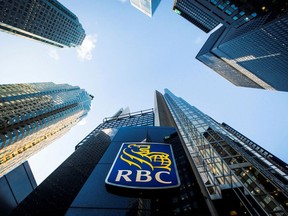
Dechaine calculated that a trio of the financial institutions — Bank of Montreal, Toronto-Dominion Bank and National Bank — have roughly 10 per cent exposure to office real estate, while Royal Bank of Canada is at the top of the group with nearly 20 per cent.
Other market watchers have expressed less concern about the ability of Canadian banks to weather exposure to commercial real estate. In an April 5 column, CPA Canada chief economist David-Alexandre Brassard said the big banks were “well positioned” to deal with historically high vacancy rates and higher interest rates, noting that commercial real estate represents two per cent of their overall assets compared to 13 per cent for U.S. banks.





Real eState
Y Combinator alum Matterport is being bought by real estate juggernaut Costar at a 212% premium – TechCrunch
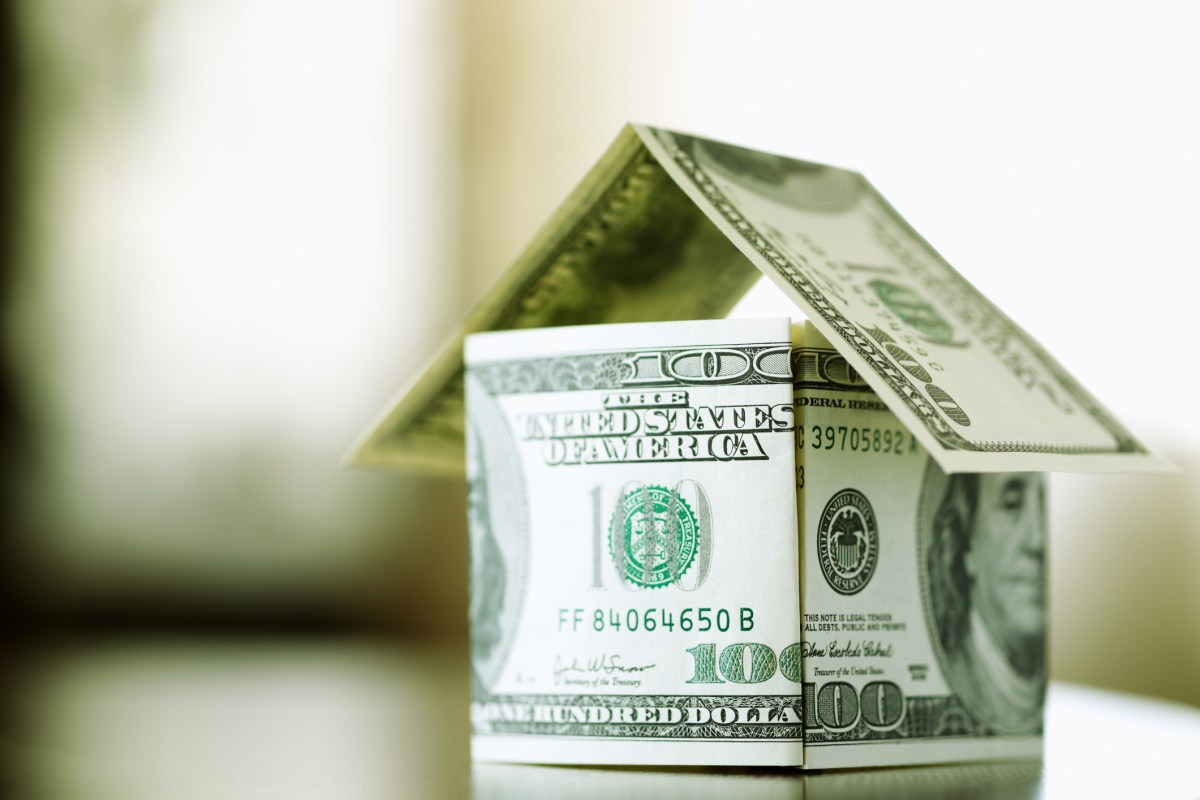

Digital twin platform Matterport has agreed to be acquired by one of its customers, Costar, in a cash-and-stock deal of $5.50 per share that gives it an enterprise valuation of about $1.6 billion. Matterport’s tech helps companies create digital replicas of physical spaces.
Costar’s offer represents a premium of a whopping 212% over Matterport’s last closing share price before the deal was announced on April 22.
The deal looks like a fortunate turn of events for Matterport, whose shares had been trading below the $5 mark since August 2022 as the company struggled to meet investors’ expectations for subscriber growth amid a sluggish real estate market and a wider macroeconomic slowdown. Matterport’s stock was trading below $2 per share before the transaction was disclosed.
The company has been trying to improve its profitability over the past year, too, according to its 2023 financial statements. However, investors haven’t been happy with the company, whose shares have been struggling since it went public via a SPAC deal in 2021, which Bloomberg reported valued Matterport at around $2.9 billion.
Matterport’s shares were trading at $4.76 before the bell on Tuesday — slightly below the $5.50 deal price, which indicates investors may be wary of the deal getting blocked by regulators, or they may be hedging their bets to account for a possible decline in Costar’s stock, since the deal has a share-based component, too. Costar’s shares, however, are up slightly since the announcement, indicating that its investors are happy with the potential benefits of the deal.
Matterport quickly rose to prominence from its start in 2011, making 3D imaging cameras, spawning out of the Microsoft Kinect hacker scene and going on to join Y Combinator’s Winter 2012 batch. Its services gained significant traction in the real estate space despite competition from alternatives such as Cupix, Giraffe360 and Zillow 3D Home.
Digital twin technology has applications in construction tech and insurtech, but demand from real estate players is particularly salient, as the pandemic accelerated the switch from in-person viewings to virtual tours, both for commercial and for residential properties.
Early-mover advantage aside, the company’s later decisions likely played an equally important role as the market evolved. It diversified into helping clients create virtual tours even with smartphones. And the addition of AI with its in-house solution, Cortex, added more differentiation to its offering, leveraging its data to generate 3D digital twins supporting additional labels such as property dimensions.
Matterport’s leadership changed over the years. Its current CEO, former eBay chief product officer RJ Pittman, took the reins in 2018 — but its fundraising trajectory was fairly smooth. Over its first decade, it raised successive rounds of funding for a total of $409 million, followed by its public debut in 2021.
“Costar Group and Matterport have nearly identical mission statements of digitizing the world’s real estate,” Costar’s founder and CEO, Andy Florance, said in a statement.
CoStar, which has a market cap of $34.84 billion, is a real estate heavyweight that operates marketplaces such as Apartments.com, Homes.com and LoopNet (for commercial real estate). This gives it direct insights into the value that Matterport can add for its end users.
In March 2024, Costar wrote in a press release, “there were over 7.4 million views of Matterport 3D Tours on Apartments.com, with consumers spending 20% more time viewing an apartment listing when Matterports were available.” The company now plans to incorporate Matterport’s virtual tours (“Matterports”) on Homes.com.
Taking to the stage at a real estate event shortly after the announcement, Florance reportedly said that allowing home buyers to view properties with their own furniture, for instance, will allow agents to provide more value and promote their brands.
It will be worth tracking what happens to Matterport’s activities beyond real estate, such as its partnership with Facebook to help researchers train robots in virtual environments.
The deal is subject to regulatory approvals, but this is more than an asterisk: In 2020, Costar’s attempt to acquire RentPath was derailed by an FTC antitrust lawsuit, and RentPath was instead bought by Redfin in 2021.
Real eState
Caution about Canada's private real estate sector abounds as valuations slow to adjust – The Globe and Mail


Valuations for Canada’s office real estate have taken longer to adjust than properties in other advanced economies.Jeff McIntosh/The Canadian Press
Sign up for the Globe Advisor weekly newsletter for professional financial advisors on our sign-up page. Get exclusive investment industry news and insights, the week’s top headlines, and what you and your clients need to know. For more from Globe Advisor, visit our homepage.
As the U.S. economy has pulled meaningfully ahead of Canada’s, so too has its private commercial real estate sector, which is adjusting more positively to the post-pandemic reality.
That’s particularly evident in both countries’ privately held office property markets. While the U.S.’s is well down the path of transforming, demolishing or otherwise ridding itself of empty office space, Canada’s has practically frozen in place following a wave of markdowns in 2023. That has made valuation assessments next to impossible.
“There’s a big dichotomy, and the Canadian market so far has not corrected,” says Victor Kuntzevitsky, portfolio manager with Stonehaven Private Counsel at Wellington-Altus Private Counsel Inc. in Aurora, Ont., which holds private real estate assets in credit and equity vehicles in both Canada and the U.S.
It’s no secret that last year was a difficult period for owners of Canadian private real estate, with many pension fund managers losing money as high interest rates drove up borrowing costs, inflation increased operating costs and vacancy rates remained high or even climbed.
The Caisse de dépôt et placement du Québec saw its real estate portfolio decline 6.2 per cent in 2023. The Ontario Teachers’ Pension Plan experienced a 5.9-per-cent loss in its real estate book, while markdowns on commercial properties owned by the Ontario Municipal Employees Retirement System (OMERS) resulted in its real estate portfolio dropping by 7.2 per cent.
However, there are pockets of strength investors can look to, says Colin Lynch, managing director and head of alternative investments at TD Asset Management Inc. These include multi-family residential and open-air retail centres, as well as industrial properties, which have been steady performers following strong gains through the pandemic.
It’s a view that dovetails with other analyses of the Canadian market. BMO Global Asset Management’s latest commercial property outlook notes that the industrial and multi-family segments remain strong due to high investor demand and tight supply.
“Office remains the asset class of the greatest near-term concern and focus,” the BMO GAM report states, estimating “a timeline for a return to ‘normal’ of a least five years.”
Mr. Lynch says while that timeframe could be accurate, private real estate investors need to evaluate opportunities on a city-by-city basis.
“Every city is very different. In fact, the smaller the city, the better the office property market has generally performed because commute times are much better, so in-office presence is much higher,” he says.
He points to cities such as Winnipeg, Regina and Saskatoon, where commute times can be 10 minutes and office workers are in four days a week on average.
However, there’s also room for more bad news, with some property owners struggling to refinance expensive debt in a higher-for-longer rate environment that could force firesales for lower-quality buildings.
The U.S. and other advanced real estate markets, such as the U.K., are “quarters ahead” of where the Canadian office market is in terms of valuation adjustments, Mr. Lynch says. A major reason is much of Canada’s commercial office real estate is owned by a relatively small group of large investment funds.
“Peak to trough in the U.K., for example, declines were about 20 per cent,” he says, noting that Canada’s market hasn’t corrected to that extent, but it is catching up.
Mr. Kuntzevitsky says these private fund assets are valued based on activity.
“The U.S. market is deeper, there’s more activity within it compared to Canada,” he says. “The auditors I speak to who value these funds are saying, ‘Listen, if there’s no activity in the marketplace, we’re just making assumptions.’”
Nicolas Schulman, senior wealth advisor and portfolio manager with the Schulman Group Family Wealth Management at National Bank Financial Wealth Management in Montreal, holds private real estate funds for clients and says he’s preparing to evaluate new investments in the Canadian space later in 2024.
“We don’t think the recovery would take a full five-year window, but we do believe it’s going to take a bit more time. Our conviction is, we want to start looking at the sector toward the end of this year,” Mr. Schulman says.
Mr. Kuntzevitsky says he’s been allocating any excess cash to the U.S. market in both private and publicly listed vehicles.
“The opportunity here is that you redeem your open-ended private [real estate investment trusts (REITs) in Canada] and reallocate the money to the U.S., where the private market reflects [net asset values] based on recent activity, or you can invest in publicly listed REITs,” he says.
Still, Mr. Kuntzevitsky is watching developments closer to home for evidence the market is turning.
In February, the Canada Pension Plan Investment Board and Oxford Properties Group Inc. struck a deal to sell two downtown Vancouver office buildings for about $300-million to Germany’s Deka Group – about 14 per cent less than they were targeting.
“Hopefully, that will activate the market,” Mr. Kuntzevitsky says. “But so far, we haven’t seen that yet.”
For more from Globe Advisor, visit our homepage.
Real eState
Proposed Toronto condo complex seeks gargantuan height increase – blogTO
A large condo complex proposed in the increasingly condo-packed Yonge and Eglinton neighbourhood is planning to go much taller.
Developer Madison Group has filed plans to increase the height of its planned two-tower condo complex at 50 Eglinton Ave. W., from previously approved heights of 33 and 35 storeys, respectively, to a significantly taller plan calling for 46- and 58-storey towers.
The dual skyscrapers will rise from a podium featuring restored facades of a heritage-designed Toronto Hydro substation building.
As of 2024, plans for high-rise development at this site have been evolving for over a dozen years, first as two separate projects before being folded into one. The height sought for this site has almost doubled in the years since first proposed, and it shouldn’t come as a huge surprise for anyone tracking development in this part of the city.
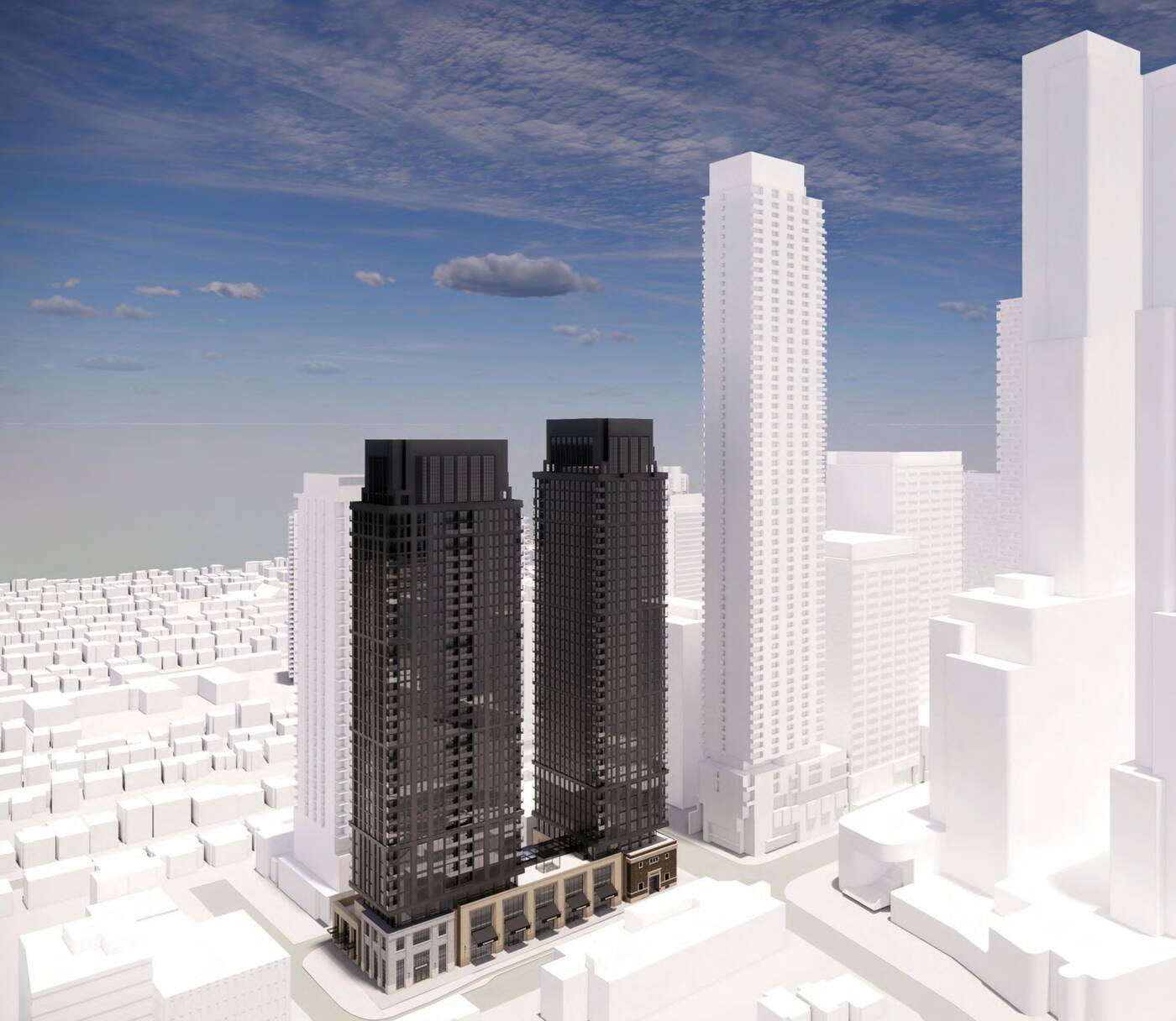

Early 2024 design for 50 Eglinton West before current height increase request.
Building on a 2023 approval for towers of 33 and 35 storeys, the developer filed an updated application at the start of 2024 seeking a slight height increase to 35 and 37 storeys.
Only a few months later, the latest update submitted with city planners this April reflects the changing landscape in the surrounding midtown area, where tower heights and density allotments have skyrocketed in recent years in advance of the Eglinton Crosstown LRT.
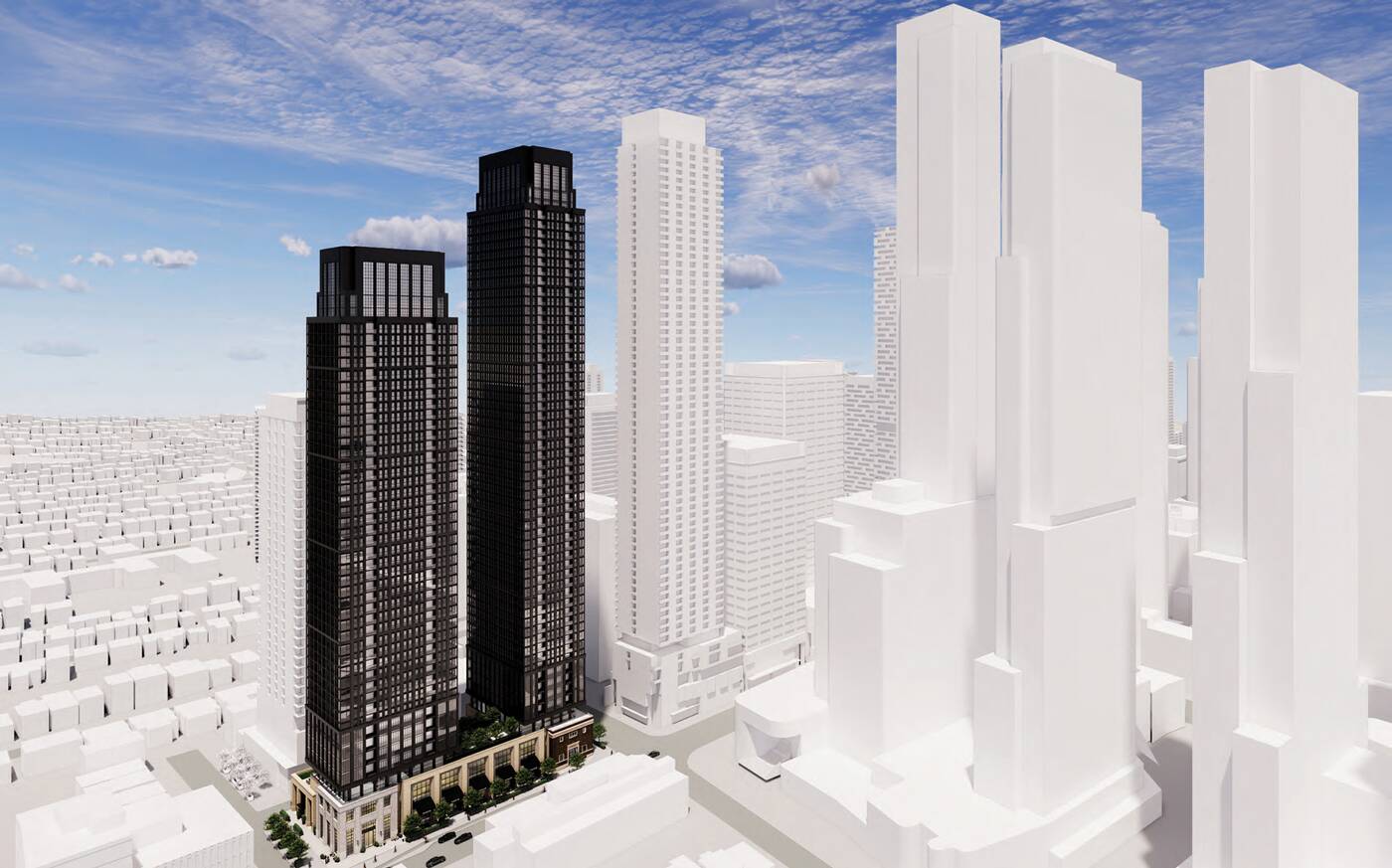

April 2024 vision for 50 Eglinton Avenue West.
The current design from Audax Architecture is a vertical extrusion of the previous plan that maintains all details, including stepbacks and material details.
That updated design introduced in January responds to an agreement that allows the developer to incorporate office space replacement required under the neighbourhood plan to a nearby development site at 90-110 Eglinton East.
According to a letter filed with the City, “As a result of the removal of the on-site office replacement, which altered the design and size of the podium, and to improve the heritage preservation approach to the former Toronto Hydro substation building… Madison engaged Audax Architecture and Turner Fleischer Architects to reimagine the architectural style and expression of the project.”
A total of 1,206 condominium units are proposed in the current version of the plan, with over 98 per cent of the total floor space allocated to residential space. Of that total, 553 units are planned for the shorter west tower, with 653 in the taller east tower.
A sizeable retail component of over 1,300 square metres would animate the base of the complex at Duplex and Eglinton.
The complex would be served by a three-level underground parking garage housing 216 spots for residents and visitors. Most residents would be expected to make use of the Eglinton Line 1 and future Line 5 stations across the street to the southeast for longer-haul commutes.
Audax Architecture/Turner Fleischer Architects
-



 Science24 hours ago
Science24 hours agoOsoyoos commuters invited to celebrate Earth Day with the Leg Day challenge – Oliver/Osoyoos News – Castanet.net
-



 Politics24 hours ago
Politics24 hours agoHaberman on why David Pecker testifying is ‘fundamentally different’ – CNN
-
Business23 hours ago
Gildan replacing five directors ahead of AGM, will back two Browning West nominees – Yahoo Canada Finance
-



 Health22 hours ago
Health22 hours agoIt's possible to rely on plant proteins without sacrificing training gains, new studies say – The Globe and Mail
-



 Tech22 hours ago
Tech22 hours agoMeta Expands VR Operating System to Third-Party Hardware Makers – MacRumors
-



 Politics23 hours ago
Politics23 hours agoFareed’s take: There’s been an unprecedented wave of migration to the West – CNN
-



 Tech23 hours ago
Tech23 hours agoBrian's Randoms from Sea Otter 2024 – Pinkbike.com
-



 Science22 hours ago
Science22 hours agoNASA's Voyager 1 resumes sending engineering updates to Earth – Phys.org




